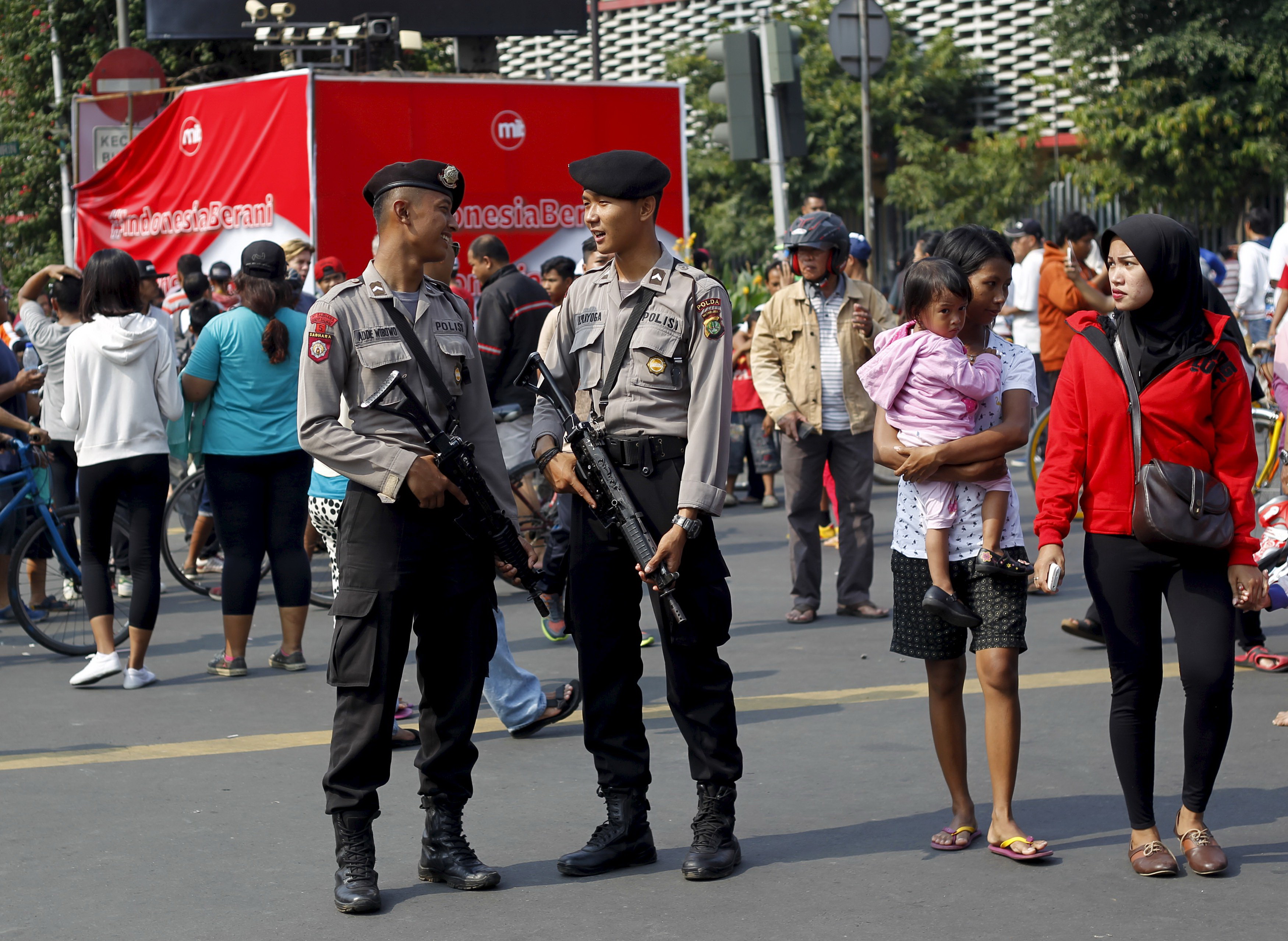JAKARTA, Jan 17 – Last week's attack on Jakarta showed for the first time that Islamic State violence has arrived in Indonesia, but security experts believe the radical group's footprint is still light here because militants are jostling to be its regional leader.
Police have identified Bahrun Naim, an Indonesian based in Syria, as the mastermind of the blitz of bombings and gunfire that left all five attackers and two civilians dead on Thursday.
But perhaps the region's most influential jihadi is a jailed cleric, Aman Abdurrahman, who with just a few couriers and cell phones is able to command around 200 followers from behind bars.
He sits at the head of Jamaah Ansharut Daulah, an umbrella organisation formed last year through an alliance of splinter groups that security experts believe could become the unifying force for Islamic State supporters.
"They want to internalise the conflicts in Indonesia so they can bring more people from the outside," said Rakyan Adibrata, a Jakarta-based terrorism expert who advises parliament, referring to the militants who have joined forces under one banner.
"Just like Syria, you need to create a conflict zone very big that can be a magnet for all jihadi to come across the world to Indonesia to wage war. That's their main objective."
Police believe that Naim, himself an Abdurrahman supporter, was trying to prove his leadership skills to Islamic State's leaders in Syria by plotting the Jakarta attack.
"In order to get the credit from ISIS, he needs to prove his leadership capabilities," Jakarta police chief Tito Karnavian said, using a common acronym for the Syria-based group.
He said Naim's vision was to unite the now-splintered groups across Southeast Asia, including Indonesia, Malaysia and the Philippines, that support Islamic State.
Regional unity in doubt
Islamic State, which controls tracts of Syria and Iraq, has accepted allegiances from jihadists in Nigeria, Egypt, Libya, Algeria, Afghanistan, Pakistan, Yemen and Saudi Arabia, but has yet to formally recognise any radical groups in Southeast Asia.
Indonesia-based Jemaah Islamiyah (JI) was the last transnational group to successfully launch major attacks in the region, including the 2002 bombings on the resort island of Bali that killed 202 people.
JI, founded by Indonesian and Malaysian militants who returned from battling the Soviet Union in the Afghan jihad of the 1980s and early 1990s, has largely become defunct due to internal rivalries and a sustained crackdown by security forces.
Governments in the region fear that Malay-speaking militants returning from fighting for Islamic State in Syria and Iraq could form a JI-like regional organisation.
But security experts doubt there is much chance of a pan-regional group emerging that would bring militants from Indonesia, Malaysia and the Philippines under one banner because there is too much that divides them.
"At this point, it's hard to imagine any Southeast Asia affiliate would be formed," said a senior Philippines army counter-terrorism official, noting that militants in his country are mostly interested in raising money from kidnappings.
"And one big obstacle to clear now is finding an amir that all of them can agree on," added the official, who declined to be named because he is not authorised to speak to the media.
In Malaysia, former university lecturer Mahmud Ahmad is believed to be behind recent attempts to unite militant groups from three Southeast Asian countries, including the Abu Sayyaf group based in southern islands of the Philippines.
Abdurrahman remains perhaps the weightiest contender for leadership of Islamic State in the region.
While serving a 9-year prison term for aiding a militant training camp in Indonesia, he has managed to encourage hundreds of Indonesians to join the fight in Syria and Iraq.
"They can run the organisation from the inside," said terrorism expert Adibrata. "Couriers bring cell phones and they record every word Abdurrahman says."
Prison authorities have tried repeatedly to silence Abdurrahman.
According to the Institute for Policy Analysis of Conflict, 10 phones were confiscated from his cell in September 2014, but just a month later he got hold of a new phone and his sermons to followers inside and outside the prison resumed.



















































